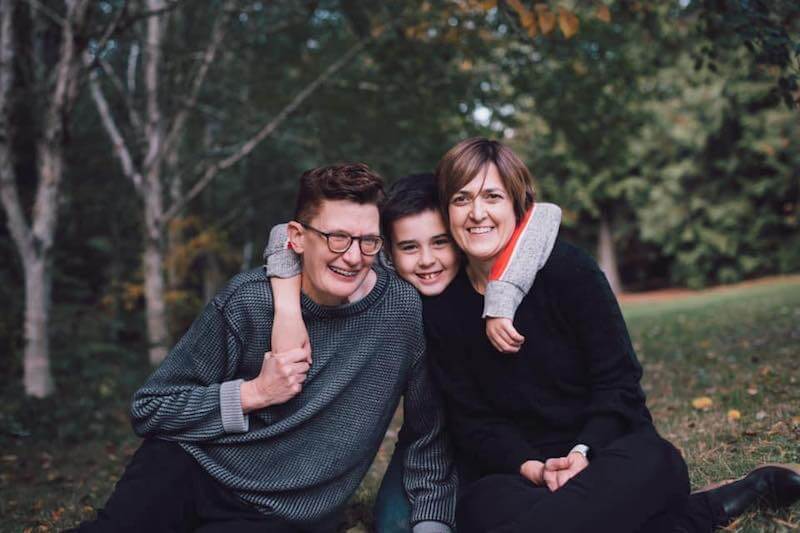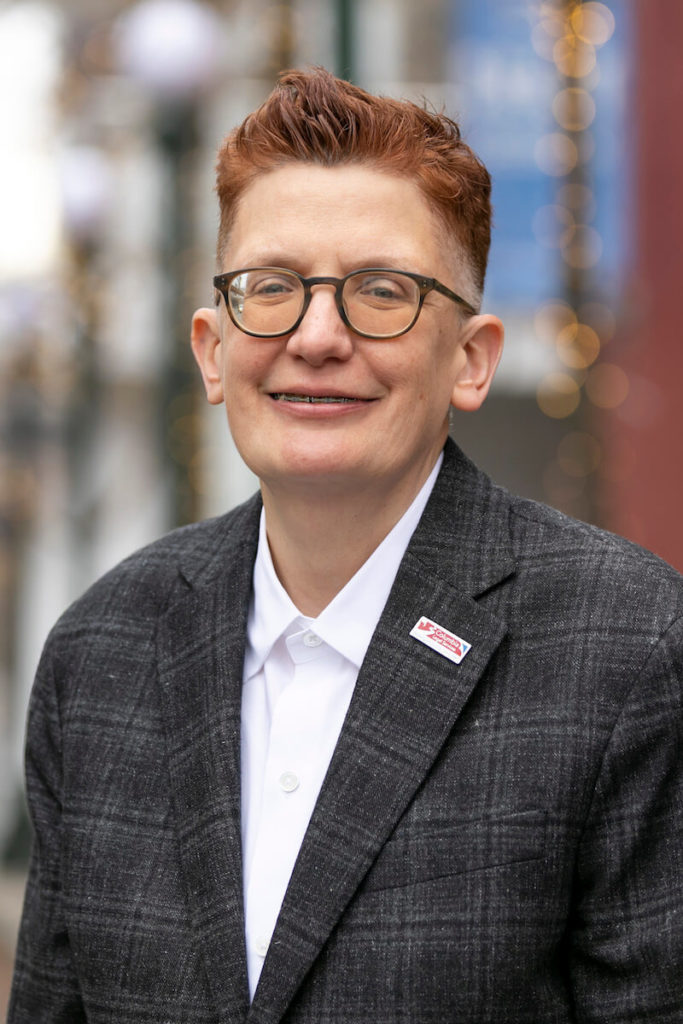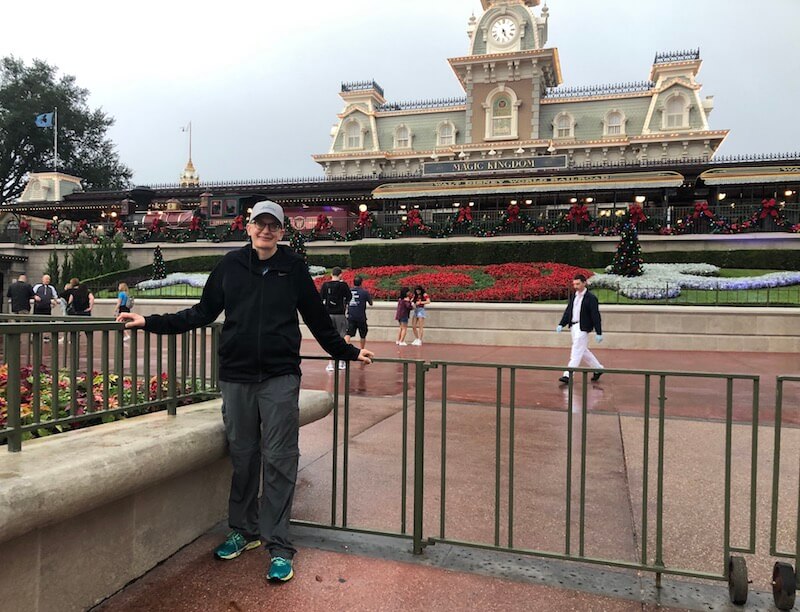In this episode:

Merf, born Martha Sue, grew up in a small, poor town in the foothills of the Appalachian Mountains. Fishing and shooting guns. Wearing cut-off shorts and jerseys. A tomboy. Until Merf’s mom sewed a yellow ginham dress for sixth-grade graduation. With limited resources, this dress was special. And yet, Merf hated that dress; it felt wrong. And not just because it was yellow.
There were unspoken rules for how a girl was to dress and behave. That graduation dress served as a turning point and marked the beginning of feelings of confusion and the need to conform to gender rules.
“All of the sudden, I felt that there was something wrong with me. I should want to wear this dress. I should want to put on makeup. I should want to do all of these things, and I just didn’t want to do any of those things.”
After all, tomboys can’t grow up to be tom-men. Adolescent girls were expected to outgrow this “phase.”
Before graduating high school, Merf set off for Buffalo, New York with dreams of becoming an Army medic. Despite passing all of tests, a psychologist probed Merf with personal questions concerning shaving and dressing habits. None one of this made any sense. It felt horrible, uncomfortable.
“What is happening? Why are you asking me these questions?”
Feeling singled out, once again Merf had the sense of wrong doing.
“I thought that I was not conforming; somehow I was the mistake and I was wrong.”
Despite the passing of time and increased awareness, individuals still suffer discrimination and judgement. Although Merf is less afraid of physical violence, the threat remains. There has been some progress with the passage of laws to protect individuals’ rights, evolving language, and less shame.
To move the collective conversation forward, we need to examine our beliefs of what we hold to be true. Why do we hold these beliefs? Do they serve us? Merf encourages us to listen to each other’s experiences.
“When we connect on a personal level, it’s harder to be hateful or to discriminate. We care about folks who are different from us.”
Feeling that butch and gender queer individuals were unwelcome most places, Merf found joy, community, comfort, and safety in the gay bars. Merf felt acceptance being surrounded by like individuals. Fear of AIDS and hate were rampant; few places felt safe. A dark time, drinking eased Merf’s discomfort and began a descent into alcoholism
“I was the person who showed up at the restaurant or bar, and people thought ‘Oh no!’.”
After being admitted to the ER, Merf pursued sobriety and recovery. Lacking clarity of thought, personal will, and internal strength, there was a safety net for Merf that offered treatment and assistance. Merf – by the virtue of being white – was not criminalized or imprisoned. Merf was lifted up. Given a chance. New York’s investment in Merf’s recovery was a saving grace.
Merf went from recovery and five years on welfare to graduating from law school and becoming an award-winning attorney. Merf’s community and relationships were foundational to this success. While Merf lacked self-belief, the surrounding community was vocal with its unwavering belief. Institutionalized in a psychiatric ward without a shirt or shoes, on suicide watch, Merf received a visitor, an acquaintance, who said, “You’re going to do great things.” A seed was planted.
While on welfare an attorney at the legal aid office approach Merf and encouraged law school. Another seed. Along this journey, individuals lovingly pushed Merf in the right direction.

Merf recently gave a TedX talk with the intention of making one young person feel less afraid and to let them know that the world is a safe place.
“Who you are is ok. There are other people like you.”
Merf advises seeking books, movies, and resources to lessen feelings of being alone and different. Despite our progress, Merf acknowledges that it is challenging and difficult to be different.
The most challenging aspect of Merf’s gender journey has been the shame associated with feeling different and trying to conform. Feeling failure in nearly every role, Merf has worked hard at letting go and embracing self-acceptance. Fear of violence has been challenging and has impacted life decisions and caused anxiety and feelings of violation.
It’s been a gift to move through life as a man, as a woman, and in the spaces between. Life is quite different for Merf being treated as a man versus a woman. Merf is thankful for the unexpected kindness and communities that have been developed and strengthened through the conversations surrounding gender issues.

Merf’s greatest hope is a world that is peaceful, loving, and kind and where all are treated respectfully. Where there is a place for everyone.
“Be willing to awkward and have fun. Even when it’s painful. Try to find joy – no matter what. We can simultaneously hold pain, discomfort, shame, joy, excitement, and hope.”
Resources
Merf Ehman TedTalk: What gender rules do you unconsciously follow?
Leslie Feinberg Stone Butch Blues
Seattle Cancer Service Committed to the health and mental wellness of Seattle’s LGBTQ+ community
QLaw Foundation Promotes dignity and respect of LGBTQ+ Washingtonians within the legal system
Lambert House Support and resources for LGBTQ+ youth
Columbia Legal Where Merf works to drive change in the world
Thank you for listening!
May our stories help forge your path forward. I hope you’ll stay tuned for our next episode and in the meantime, learn more about my story on my blog.

